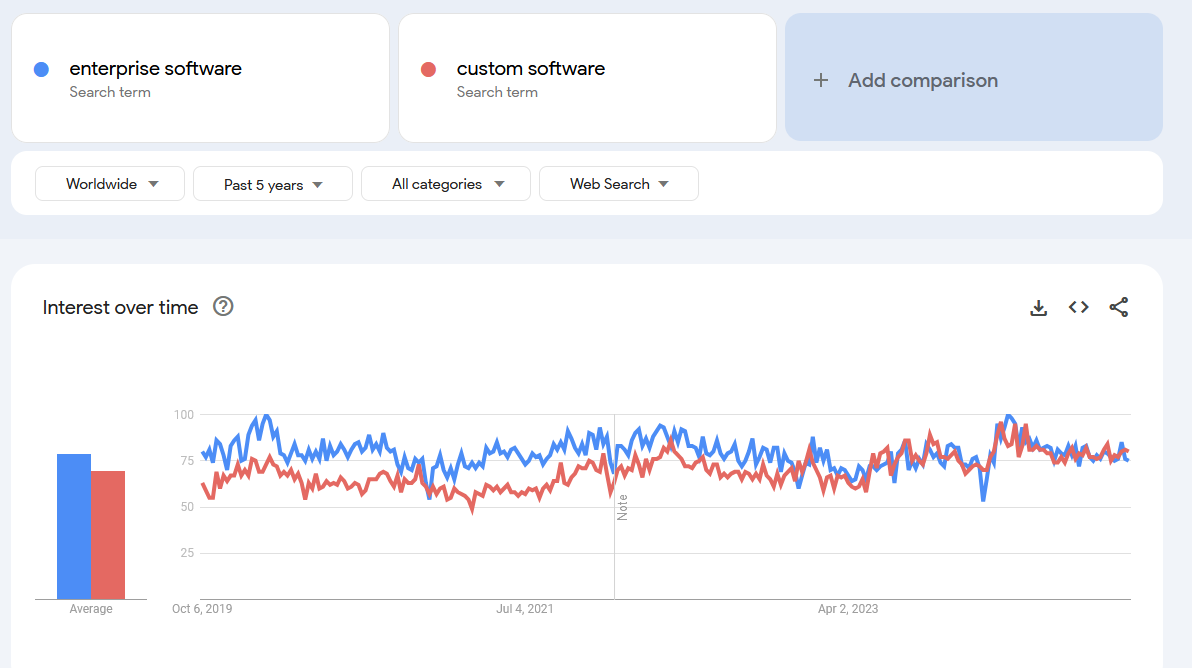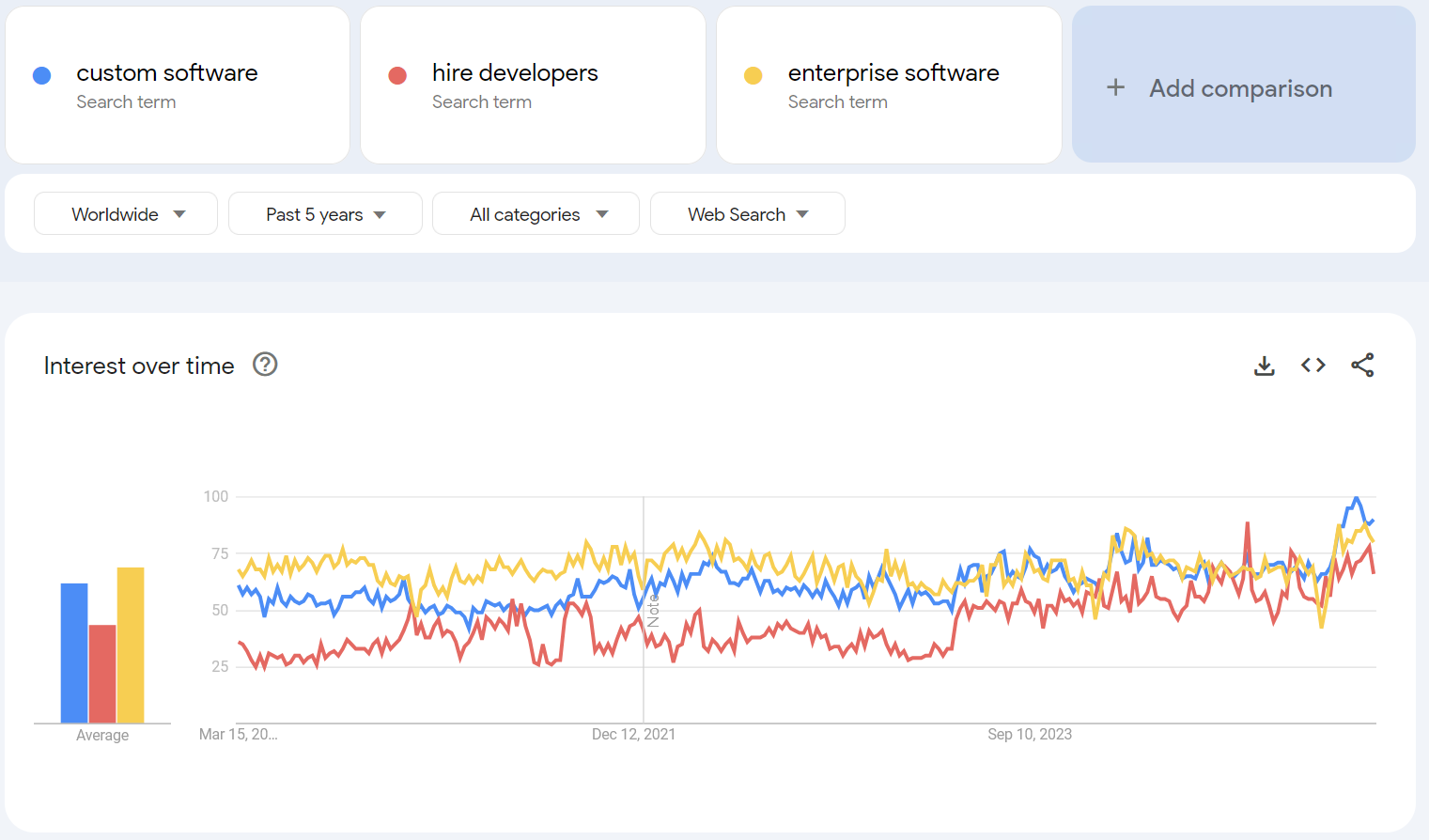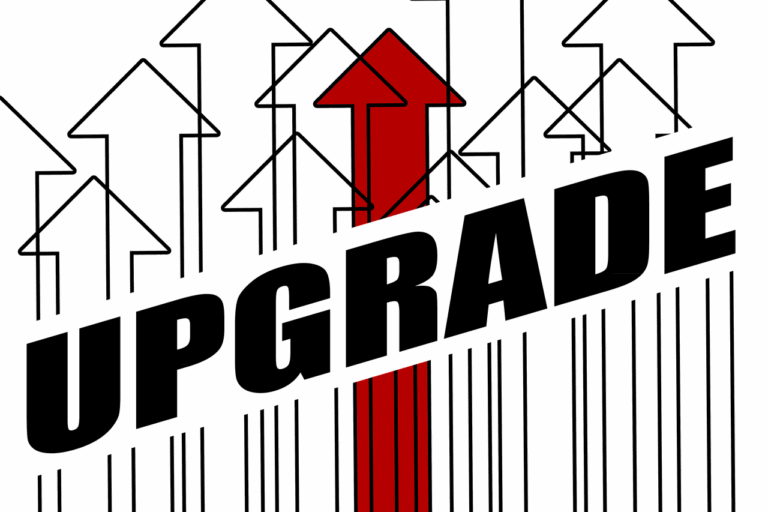If you are (or were) building a business from scratch, you know well that the right amount of uniqueness provides to your success. Not many founders realize that this rule applies not only to their products and services but also to their internal processes. But often the more unique approach is, the more it costs to maintain it. Is there any universal balance – a border maybe – where you are in perfect spot which allows you to benefit from both low maintenance cost and high uniqueness? This guide explores how to find your optimal position on this spectrum, with updated insights for 2025.
What business elements can you consider for uniqueness?
I do believe that each element in business that you have can be considered in plane of uniqueness. For this article, let’s consider “uniqueness” as a measure for something that can be either very common on the market (ready-made, standardized, something that is already available) or uncommon (for example, a software that provides functionality that is not available anywhere else). For some aspects it might be had to find a “number” to represent actual value on scale and those you will just need to try out to mark as you “feel”. Example business aspects that can be considered:
- Marketing – can be either very standardized, like using Google Ads and SEO or very uncommon – like sending flowers to random houses when you run a car dealer shop
- Internal processes – you can use industry-standard as your base that is described and known to workers (for example ISO standards) or very unique (you create your own standards)
- External SaaS websites – you can create a dropshipping service basedon WordPress, with free template and WooCommerce, or you can create an e-commerce from scratch
and so on. What is common on this scale is that the less uniuque approach is, the less you stand out and often your costs are lesser. For marketing – you could hire Google Ads expert or even allow money to flow to Google and allow their algorythms to optimize it, but unique approach requires tailoring your solution (like agreement for a lot of flowers with local florist). Using industry standards for internal processes can speed up your HR onboarding process a lot, and even help you to use ready-to-go tests against candidates.
| Approach | Description | Cost Implications | Market Differentiation |
|---|---|---|---|
| Standardized | Using common, ready-made solutions | Lower initial costs, predictable expenses | Minimal differentiation |
| Hybrid | Combining standard tools with custom elements | Moderate costs with targeted investment | Strategic differentiation |
| Fully Custom | Building proprietary solutions from scratch | Higher upfront investment, potential long-term savings | Maximum differentiation |
Let’s consider on permise SaaS for a moment. If you will use standardized approach, you can start in less than a day, maybe even hours. But it may be hard to catch client because he can select any of other thousands websites that are already using this approach. On the other hand if you want to do that is non-existing on the market, you probably will have a high starting costs to develop everything from scratch. I will focus on software development for rest of this article.
What is custom software for the enterprise?
Let’s first answer to question what is NOT a custom software. Essentially, it is anything that you can buy, install, download, set up, customize and run without much developers help. This can be a WordPress site or maybe a subscripiton for invoicing system. Even if you have installed paid plugins for your Joomla – this will still NOT be a custom software – UNLESS you are only user of such plugin and you have exclusive license to use it. So noone can set up the same set of ready-to-go software as you.
On the other hand, custom software is something developed as a unique product. It is tailored to do specific action for specific case, sometimes in specific way, to best suit the result requirements. Often it is something that only you have license to use and company owns IP for such system. By using such system company can approach a problem or task in specific and precise way as they want, which gives a huge advantage of uniqueness on the market. However, you may be surprised that only some businesses develop software from scratch.
There is also a lot of grey area in between those two. For example, you can cosider a WordPress website, but a one that uses bespoke plugin for managing specifc warehouse items – let’s say it’s tailored for managing flowers. In such case you can benefit from tailored solution (like maybe simplified item management process specific for your warehouse) while your business won’t be that easy to copy.
What percent of companies use custom software?
It is hard to answer that question directly because of different definitions of “custom software” and data will definitely be different for every continent. But we can assume that in any developed country companies must use some kind of software, or they will be behind competition – so that’s certainly North America, Europe and Asia. Some companies also will not tell if they are using custom software, because this might be part of their advantage against competition. But I here are some staitstics in this topic that could be interesting and can help to understand it better.
- According to Grand View Research for 2023 the global custom software development market was valued at USD 35.42 billion in 2023 and is expected to grow at a compound annual growth rate (CAGR) of 22.5% from 2024 to 2030.
- Abount 69% of businesses in US use some kind of cloud computing or storage technology, sometimes even without knowing it
- Only last release of Ollama (open source AI model for langauge processing) was donloaded over milon times within 2 weeks after release, and total downloads are 14 milion, just withn 4 months. This indicates huge interest in running own customized AI models
- Above 50% of software development projects are based on business automation
- Google Trend queries for “enterprise software” and “custom software” are in stable interes
For 2025 of these number of course changed. The global custom software development market has grown to approximately $65.3 billion in 2025, expanding at a CAGR of 22.5% since 2023. Businesses increasingly use hybrid approaches, combining off-the-shelf solutions with strategic customization to optimize both uniqueness and cost-effectiveness. This guide provides a framework for making these crucial decisions.
This is data we considered for 2023:

But thing to consider would be – what keywords should we actually check to measure interest in creating custom software? I thought that maybe adding “hire developers” woud give a bit better view on the market. And here it is:

I think that rising trends are self-explanatory and easily noticable.
Disadvantages of custom enterprise software – when you should use ready solutions?
Businesses face some constraints, especially at the beginning of their journey. These are usually connected to funding and time. That is why some business owners want to cut corners wherever possible. They sometimes do it at the expense of their software. Disadvantages are especially painful when they are amplified by improper appraoch to developing custom software.
High initial costs
This is especially true if you consider hiring developers, project managers, UX and UI designers, server administrators, while also teaching team to work together and establishing internal standards. Although impact can be reduced – both financial and ogranizational – if you use software house services. While such services may seem expensive at first sight, they do provide also undeniable advantages, such as:
- You don’t need to hire anyone fulltime, it is enough to have contract for specific amount of hours
- You don’t have to worry about replacements
- You don’t waste time on teaching team how to work together, because they already are working together
- You get experienced team that will know technology and it’s limitations
Long Development Time
Admittedly, completing a custom project may take a long time, especially when it is large. Also, if your project consists of many aspects, primarily unique, the cost of creating it will substantially hit your budget. But this can be addressed by focusing on developing only core functionality at the beginning (MVP) and testing if there is enuogh market to sustain business – or using MVP to get additional funds from investors. You can learn how to make one-page business plan for elevator pitch and use it for such purpose along with some data gathered from MVP development. Additionally, SCRUM team will cooperate tightly with you to give you constant updates on progress, issues and opportunities.
Ongoing Maintenance and Updates
Once custom software is built, it requires regular updates, bug fixes, and security patches. Unlike off-the-shelf solutions, which receive automatic updates from the vendor, custom software maintenance is entirely your responsibility. On the other hand, if you are using ready solution, still someone need to do updates and maintenance, so there’s a cost here aswell, which is often forgotten. Not to mention that using updates by vendor without coordination can break integrity with legacy systems (if your solution uses such connections). Also such approach does not consider your end-users as primary focus, but wider group – this means that with each update your specific end-users can get not as well optimized software for their needs.
Advantages of custom enterprise software – when is it needed for the enterprise?
Except for the obvious reason, which is the uniqueness, many other factors make custom software for the enterprise the sounder choice. Let me elaborate on just a few of them below.
A solution tailored to business needs
Uniqueness is about creating something new. It is yet another significant benefit of creating a custom software product. You want to satisfy your customer like no one has done before. It is the goal of the product you create. It is, therefore, obvious the software you use will not be accustomed to building such unique solutions. Simply because you might be the only one who offers or plan to provide them. It is not something you will achieve by selecting a ready-made solution. Admittedly, many companies do it and do so successfully. However, it is not a long-term strategy for your product to thrive, scale, and be utterly successful for years. When working on custom enterprise software, a contractor focuses on your needs helping to sell your product as opposed to placing focus on universal needs that help to sell other clients’ products to a broader range of users.
Flexibility and scalability
When you create custom software for the enterprise, you can plan every feature from start to finish. You can add more features or resign from implementing some of them. You can review your needs and adjust every aspect of your software. You are the one who controls how the product is built and what it will become. This flexibility also helps to scale your business. After all, you want to grow, expand, and make your business powerful. With custom software development, it is not only a possibility but becomes a reality.
Security of your data
According to research, by the end of 2023, cybercrime will be the world’s third largest ‘economy’ if it were measured as a country. Security breaches happen daily, and the targets are usually not individuals but enterprises. In light of the above, your business’s data security is of utmost importance. You may be surprised that ready-made solutions are more vulnerable to cyber-attacks. Cybersecurity is something that most companies will overlook, not pay attention to, or assume that it comes as a part of the software they purchase. Whether it does is an entirely different story. Having your team that handles the software security is a wiser decision than relying on a third party.
Individual technical support
When you contact a third-party software development company with a problem or question regarding the product, what comes to mind? In most cases, there will be a long wait for the replay, not to mention the resolution of the problem. In such instances, you depend on the other company and are out of control regarding time management. Imagine how many customers it affects. The longer the downtime, the bigger the dissatisfaction – yours and your customers. Furthermore, do all third parties have a support service? Many mostly rely on guides and FAQs when dealing with customer queries. On the other hand, you have your team of developers who can swiftly handle all queries and resolve issues.
Cost-effective solution
Having mentioned already that ready-made software is cheaper, claiming that custom enterprise software may be cost-effective almost seems contradictory. However, in many cases, it is. Especially in cases where you want to make your project unique or personalize it. What seemed like a good subscription deal usually works well for standard functionality. However, introducing customization is more expensive than building the whole software from scratch. And what if you decide to switch to a custom solution because some functionalities are unobtainable with your third-party provider? You might be surprised that these are not cheap or quick processes. Building software from scratch requires you to pay more upfront. But considering the bigger picture, such an option saves you money, effort, and time.
Client satisfaction
Because the whole purpose of any software you have is to run your business effectively, we must consider the business side of your efforts. Therefore, if you create products for your clients using personalized software, your clients will see and feel the difference. Everyone likes to feel special, and making your clients feel in such a way establishes a solid and long-lasting relationship. By adjusting your products to your clients’ preferences and doing it fast, you will gain their never-ending support. And the clients’ support is what makes your business successful.
The Enterprise Software Landscape in 2025
The enterprise software landscape has evolved significantly since 2023:
- AI Integration: 78% of enterprise software now includes some form of AI functionality, up from 45% in 2023.
- Low-Code Development: The low-code development platform market has reached $45.5 billion, making customization more accessible to businesses without extensive development resources.
- API-First Architecture: 82% of new enterprise applications are built with API-first approaches, enabling greater flexibility in combining custom and off-the-shelf components.
| Industry | Custom Software Adoption Rate | Primary Drivers |
|---|---|---|
| Financial Services | 76% | Security, compliance, algorithmic advantage |
| Healthcare | 68% | Patient data integration, regulatory requirements |
| Manufacturing | 62% | Supply chain optimization, IoT integration |
| Retail | 58% | Omnichannel customer experience, inventory management |
| Professional Services | 53% | Client management, specialized workflows |
So what approach is best for my company?
The answer is – it depends. If you are considering part of the business that is being sold to customers, you can think of rule of the MAYA and consider if such rule will be kept when going with custom solution. On the other hand, if you would like to focus on doing business and not re-creating business from scratch (which would be VERY costy and probably counter-productive) – you should probably use non-unique approach for non-core repeatable tasks – like invoicing. Because – why would you focus on developing new invoicing system when your core business is selling flowers? If you are a founder, then you should probably consider which parts of your business should use ready solutions and which need to be bespoke.
The definition of custom software has evolved with technological advancements:
- Fully Custom: Built entirely from scratch for exclusive use
- Platform-Based Custom: Built on platforms like Salesforce or Microsoft Power Platform but with extensive customization
- Composable Applications: Assembled from various microservices and specialized components
- AI-Enhanced Standard Software: Off-the-shelf solutions enhanced with custom AI models
Decision Matrix for Custom vs. Off-the-Shelf
| Business Need | Custom Solution Recommended When… | Standard Solution Recommended When… |
|---|---|---|
| Core Business Processes | Processes provide competitive advantage | Processes follow industry standard practices |
| Customer Experience | Experience is a key differentiator | Basic functionality meets customer needs |
| Data Management | Data insights drive strategic decisions | Standard reporting meets business needs |
| Security Requirements | Unique security challenges exist | Industry standard security is sufficient |
| Growth Trajectory | Rapid or unusual scaling anticipated | Predictable, steady growth expected |
The Gray Area: Hybrid Approaches
Modern businesses increasingly adopt hybrid approaches:
- Core-and-customize: using standard platforms for core functionality but adding custom modules for differentiation
- API integration architecture: connecting best-of-breed solutions through custom integration layers. Consider headless approach.
- Custom user experience layer: standard backend systems with customized frontend experiences
- Partial no-code approach: use no-code where some ready to go tools may optimize for quick launch
If you are not sure which approach would be best, maybe it’s a good moment to consult it with Sailing Byte and even attend paid workshops session for your startup?
Emerging Trends Influencing the Decision in 2025
AI and Machine Learning Integration
- 76% of enterprises now implement custom AI/ML models for competitive advantage
- Custom data pipelines and training architectures yield 3.5x better results than pre-trained models for specialized tasks
- Low-code AI platforms reduce custom AI implementation costs
Low-Code/No-Code Development
- Many application development now includes low-code tools
- Hybrid development teams may reduce costs
- Business stakeholders can directly contribute to application development
Microservices and API Economy
- 82% of enterprises have adopted microservices architecture
- API-first design enables combining the best of custom and off-the-shelf components
- Composable architecture reduces the all-or-nothing decision
Ease of creating custom software for the enterprise with Sailing Byte
Sailing Byte does not only create professional websites. We can help you create your product without relying on ready-made solutions and even advise you when and where use ready-made solution and when use custom software. Moreover, this solution will be yours to keep as all copyrights are transferred to you. We will work with you to create the plan of action that will lead to the release of a minimum viable product. Then, we will develop the product gradually to achieve the desired custom enterprise software fully tailored to your business needs. According to Grand View Research, the global custom software development market is expected to expand by 22.3% from 2022 to 2030. Be part of that trend now and get your perfect custom enterprise software from expert developers. Book a call today to discuss the details of our cooperation.




